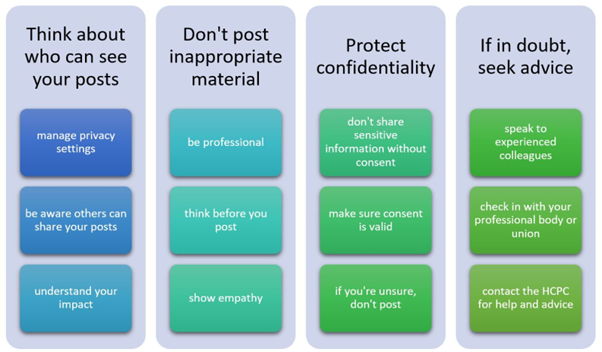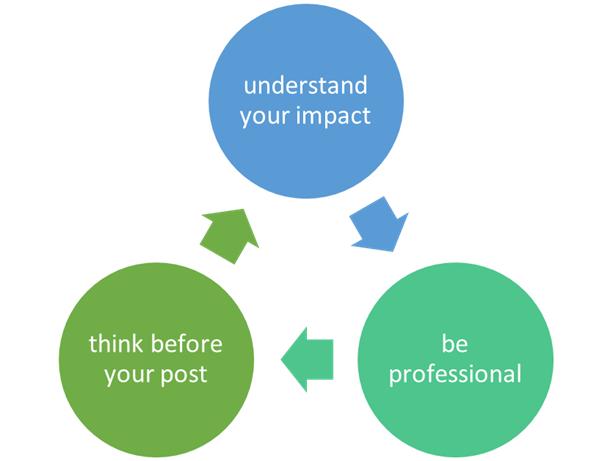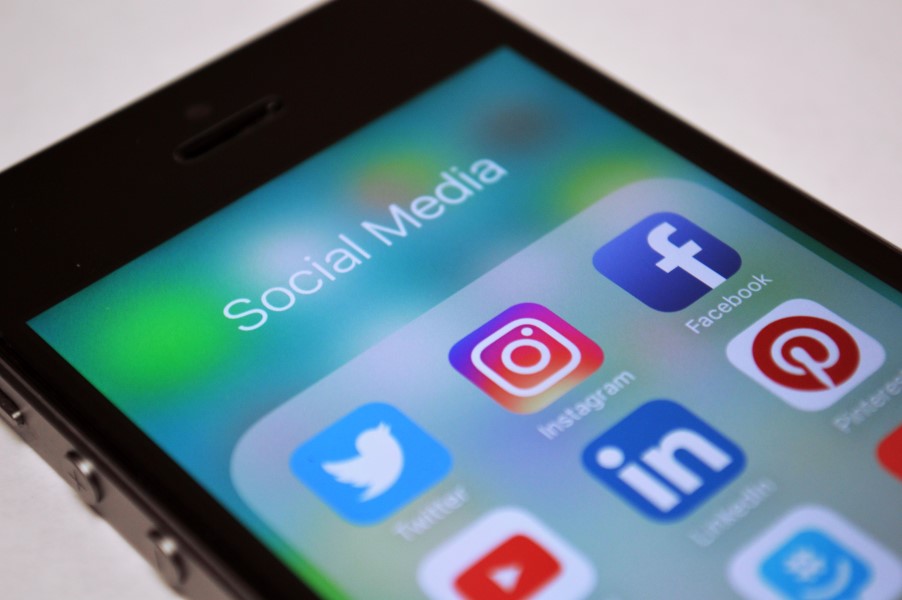Social media can be an excellent tool for all kinds of healthcare professionals. It provides opportunities for colleagues to keep in touch and share information promptly, as well as showing examples of best practice.
It can provide opportunities for isolated professionals (whether by location or area) to learn from their peers, facilitating continuous professional development. Social media can also raise the profile of professions, helping professionals reach out to the public and combat misinformation.
Professionalism
As with any online platform, social media needs to be used in the right way to protect you from difficult situations and abuse. Platforms such as Twitter, Facebook and TikTok encourage informality in their users, but healthcare professionals must always be aware that when using social media they need to hold themselves to the same standard of professionalism as they would in person.
Top tips

Getting it right
Getting social media right is mostly a matter of having a clear purpose in mind for your posts, and a firm idea of who can see what you’re sharing. Once those are in place, it is much easier to determine what is professional and what, however well intentioned, crosses the line.
Do also remember that, while a situation can feel urgent, you very rarely need to react immediately on social media. If you are unsure of the tone of what you’re about to send, waiting and seeking advice will always be the wisest course of action.
Consider these three key points before you post:

The reason these areas are so important is because unfortunately social media rarely conveys the full context and intent of your words. Information spreads swiftly on the internet and will reach audiences you don’t always consider.
Thinking before you post, and ensuring you know the evidence that underpins the content you are sharing, or the impact it might have, is vital in stopping the spread of misinformation and its harmful effects. You can also help others if you see them posting misinformation. You should never shame them, but you can work to understand why they might have posted the content they have and explain the damage it could cause. If you can, take the discussion offline and out of the glare of social media.
Further advice and support
You can find further resources that might help you on our website:
- HCPC Social media guidance
- Social media blog post (2018)
- Social media blog post (2020)
- Information on communicating during the COVID-19 pandemic
Professional bodies can also give you guidance in this area. You can find contact details here.
Finally, your employer should have local policies and guidance in this regard too.


